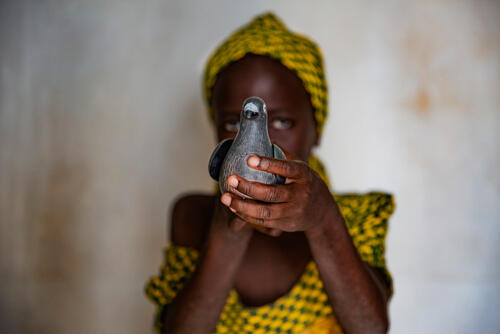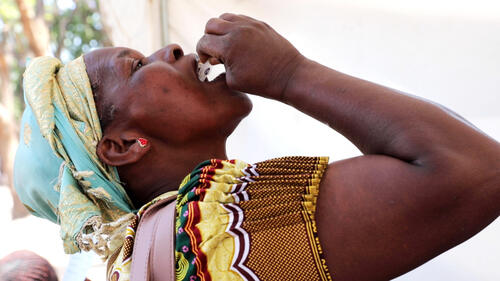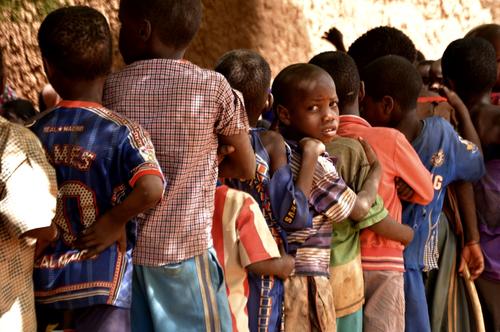Since early July, Niger has been battling its worst cholera outbreak in years.
As the disease ebbs, Médecins Sans Frontières (MSF) and local health authorities shift their focus to preventing future outbreaks in the southern region of Maradi, most affected by the current epidemic and known as a hotspot for cholera along the border of Niger and Nigeria.
These efforts include vaccinating over 145,000 people with an easy-to-administer oral vaccine in three of Maradi’s health zones: Tchadoua, Aguié and Gazaoua.
MSF has provided local health authorities with logistical and technical support. Epicentre, a research unit created by MSF to provide epidemiological expertise that underpins operations, is supporting the intervention with a post-vaccination survey.
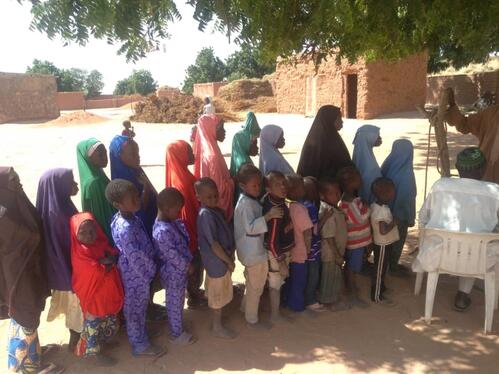
Vaccinating against cholera
“During a cholera outbreak, timely vaccination helps quickly reduce the number of new cases,” explains Ousmane Guindo, study coordinator at Epicentre in Niger.
“For preventive vaccination campaigns, like the one done in Maradi, we choose high-risk zones that have a history of cholera epidemics and are considered most conducive to outbreaks.”
“The vaccine protects against cholera for about two to three years. The downside of any such intervention is that it implies a bet that the disease will return within this period, to these specific areas. In Maradi, it is a very likely scenario.”
The strategies applied by MSF allowed us to significantly reduce morbidity and mortality in communitiesInnocent Kunywana, MSF field coordinator
Unprecedented outbreaks
Maradi, and in particular one of its districts – Madarounfa – has been hardest hit by the ongoing outbreak, which has later spread beyond to three neighbouring regions: Dosso, Tahoua and Zinder.
Since the beginning of the epidemic in July, the Ministry of Health has reported 3,821 cholera cases – 69 per cent of them in Madarounfa alone – and 78 deaths.
MSF already ended its response, closing its last cholera treatment centre in mid-October. Throughout the intervention, our teams treated 2,543 cases, 30 of which proved fatal.
“The magnitude of this epidemic, with many simultaneous outbreaks in Niger and Nigeria, has been unprecedented in the subregion,” says Innocent Kunywana, field coordinator of the rapid emergency response team for the Sahel (EMUSa).
“One distinctive feature of the epidemic has been the cross-border movement of patients, many of whom have travelled from Nigeria to Niger to get free treatment,” Innocent explains. “This, together with lack of access to clean water across the border areas of both countries, had an impact on the time needed to halt the spread of cholera.”
“The treatment and prevention strategies applied by MSF in our zones of intervention allowed us to significantly reduce morbidity and mortality in the communities,” he concludes.
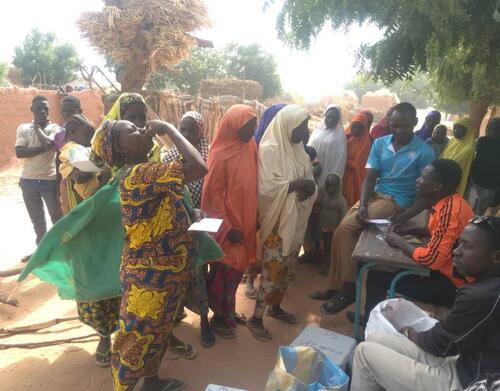
The underlying problems
Cholera has been receding in Niger in the last weeks, but risks of further propagation remain. With several ongoing outbreaks in northeast Nigeria, the border areas of Niger are still particularly exposed.
Diffa region, where 250,000 people are displaced by conflict, is at high risk due to its closeness to the Nigerian Borno state, where more than 6,200 cases have already been reported.
“What all areas prone to cholera outbreaks have in common is difficult access to clean water and proper sanitation,” says Guindo. “While vaccinations limit the number of cases and deaths, they do not, and cannot, solve the underlying problems.”
“Local and displaced populations of southern Niger and northern Nigeria continue to face challenges that require concerted humanitarian and development efforts. Only a durable improvement of living conditions on both sides of the border will allow for elimination of the root causes of cholera,” says Guindo.
Until then, cholera will likely remain a public health threat in the Lake Chad region, as it does in many other corners of the world.
An estimated 100,000 people still die of the disease every year, although with a timely diagnosis, the disease can easily be treated through oral or intravenous rehydration.
Preventive vaccination campaigns like the one MSF has supported in Maradi arean important intermediary step to reducing this number: they protect people in cholera-prone areas while leaving the time necessary to implement more durable solutions.
These interventions also have an important added value in humanitarian crises, as they can prevent the spread of the disease among very vulnerable populations in places where stopping the ongoing epidemic would be particularly challenging, for security reasons and due to lack of humanitarian access.
This was also the logic behind a preventive vaccination campaign conducted by MSF in the Diffa region back in 2016.



